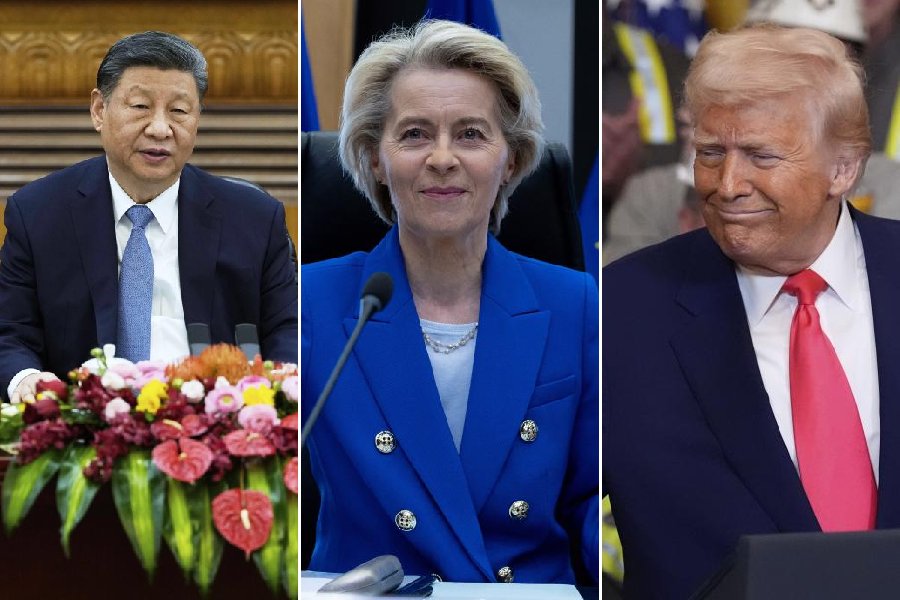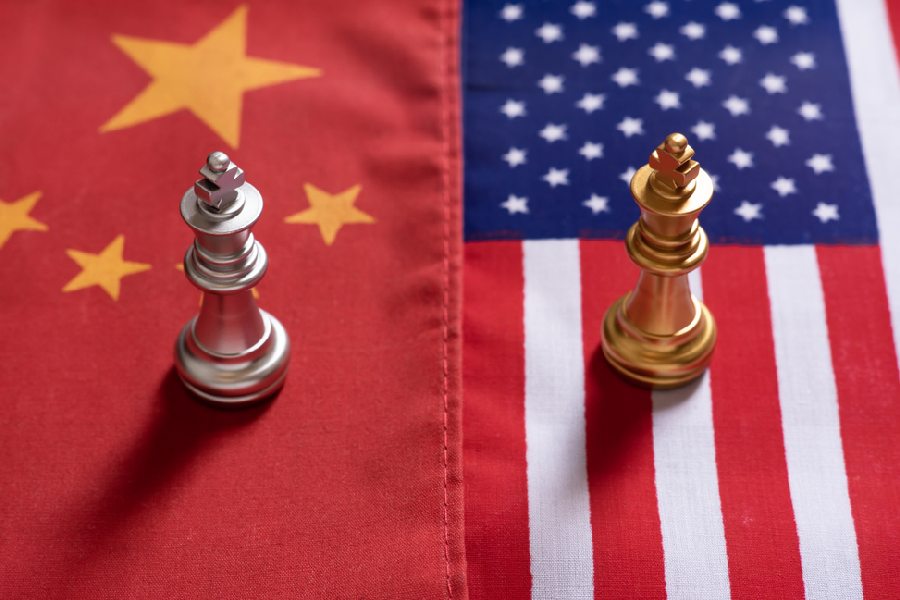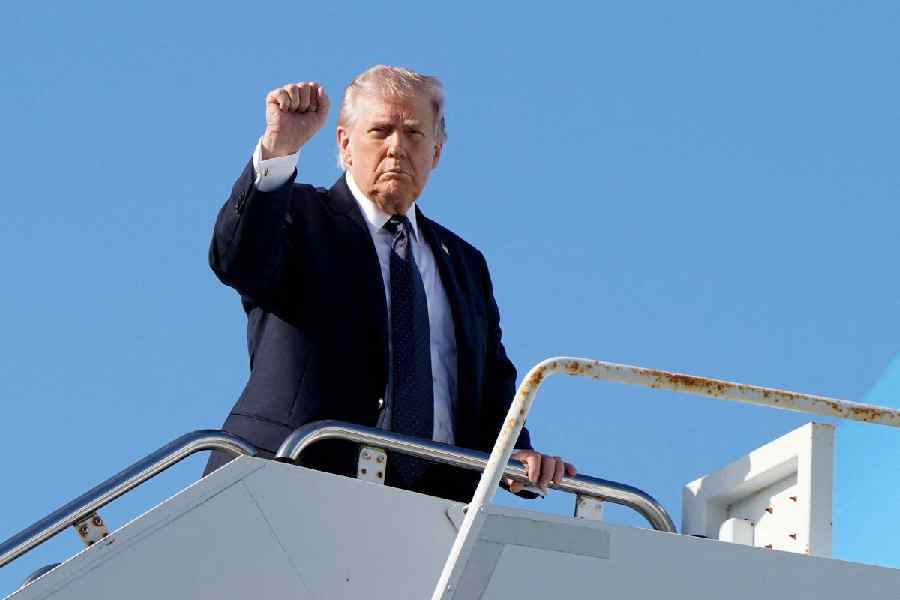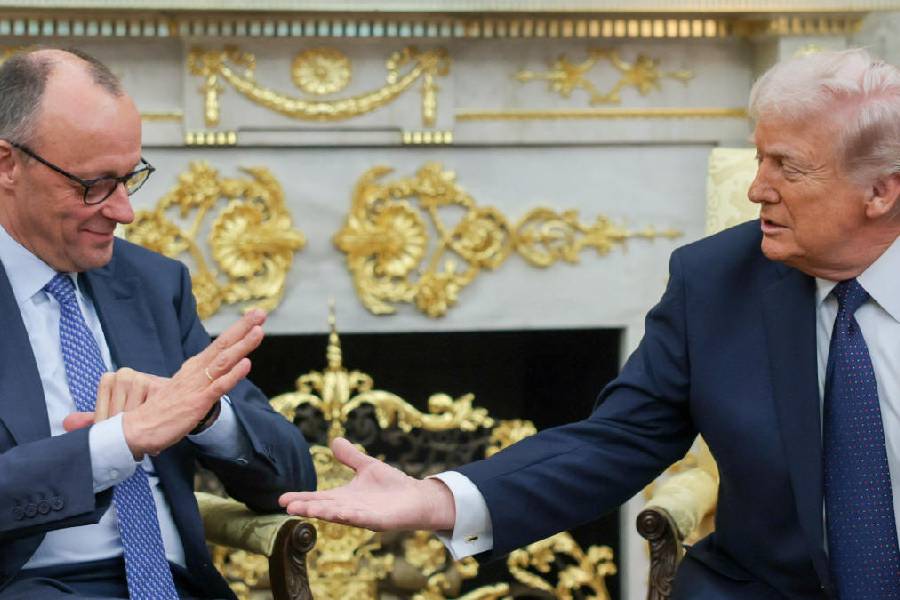The European Union has announced 25 per cent duties on steel and aluminium, as well as 20 per cent tariffs on almost all other goods, including cars as retaliation to US President Donald Trump’s reciprocal tariffs.
The EU will implement its first set of countermeasures next week, joining China and Canada in a growing coalition of nations pushing back against Washington’s aggressive trade policies.
The EU’s decision coincided with the day Trump’s “reciprocal” tariffs on the bloc and other global economies officially came into effect.
The European Commission confirmed that it will retaliate with duties of 25 per cent on a range of US imports beginning Tuesday.
Goods targeted include maize, wheat, barley, rice, motorcycles, poultry, fruit, wood, clothing, and even dental floss, totaling approximately €21 billion ($23 billion) in value last year.
The EU’s response will be rolled out in three phases: on April 15, May 16, and a final stage targeting almonds and soybeans on December 1.
“These countermeasures can be suspended at any time, should the US agree to a fair and balanced negotiated outcome,” said the European Commission in a statement.
Earlier Wednesday, China struck back at the US with a sweeping tariff hike.
Beijing said it will impose additional tariffs of 84 per cent, a significant jump from the earlier 34 per cent, on all American goods starting April 10, Reuters reported.
Trump had announced 104 per cent tariffs on Chinese imports during his Liberation day tariffs.
The announcement prompted a sharp dive in US stock index futures, underscoring fears of a global economic downturn.
China's commerce ministry also intensified its counter-offensive by placing 12 US entities on its export control list, while adding 6 American firms to its "unreliable entity" list.
The US Treasury Secretary Scott Bessent called the development “unfortunate” and urged Beijing to “come to the table” instead of avoiding the issue.
India’s Union ministry of external affairs said on April 9 that it was studying the implications of US President Donald Trump's reciprocal tariffs on India.
The Ministry said discussions are ongoing between the Indian and US trade teams to expedite the conclusion of a beneficial multi-sectoral bilateral trade agreement.
As per Reuters, Japan and South Korea agreed to jointly respond to US tariffs, a social media account affiliated with Chinese state media said on Monday, an assertion Seoul called "somewhat exaggerated", while Tokyo said there was no such discussion.
Trump’s tariffs have also sparked widespread concern among economists and corporate leaders.
Some Trump supporters claim the tariffs are a calculated effort to force a recession to combat inflation, but others argue the moves lack coherent strategy.
But experts have differed on the ramifications of Trump’s decision.
Edward Luce of the Financial Times wrote in a post on X, “A trillion comments have been wasted accusing the wrong people of Trump derangement syndrome. The real TDS afflicts those who keep seeing a rational actor, or an economic chess game, where none exists.”
In response to a flash survey by CNBC among its CEO council, one US-based CEO summed up the sentiment: “This is the Trump recession.”
According to the BBC, the President and his allies argue that these tariffs are essential to restoring America’s manufacturing base, which they deem crucial for national security.
But with the tariffs now affecting more than $2 trillion worth of imports, the overall effective US tariff rate is set to reach its highest level in over a century.











